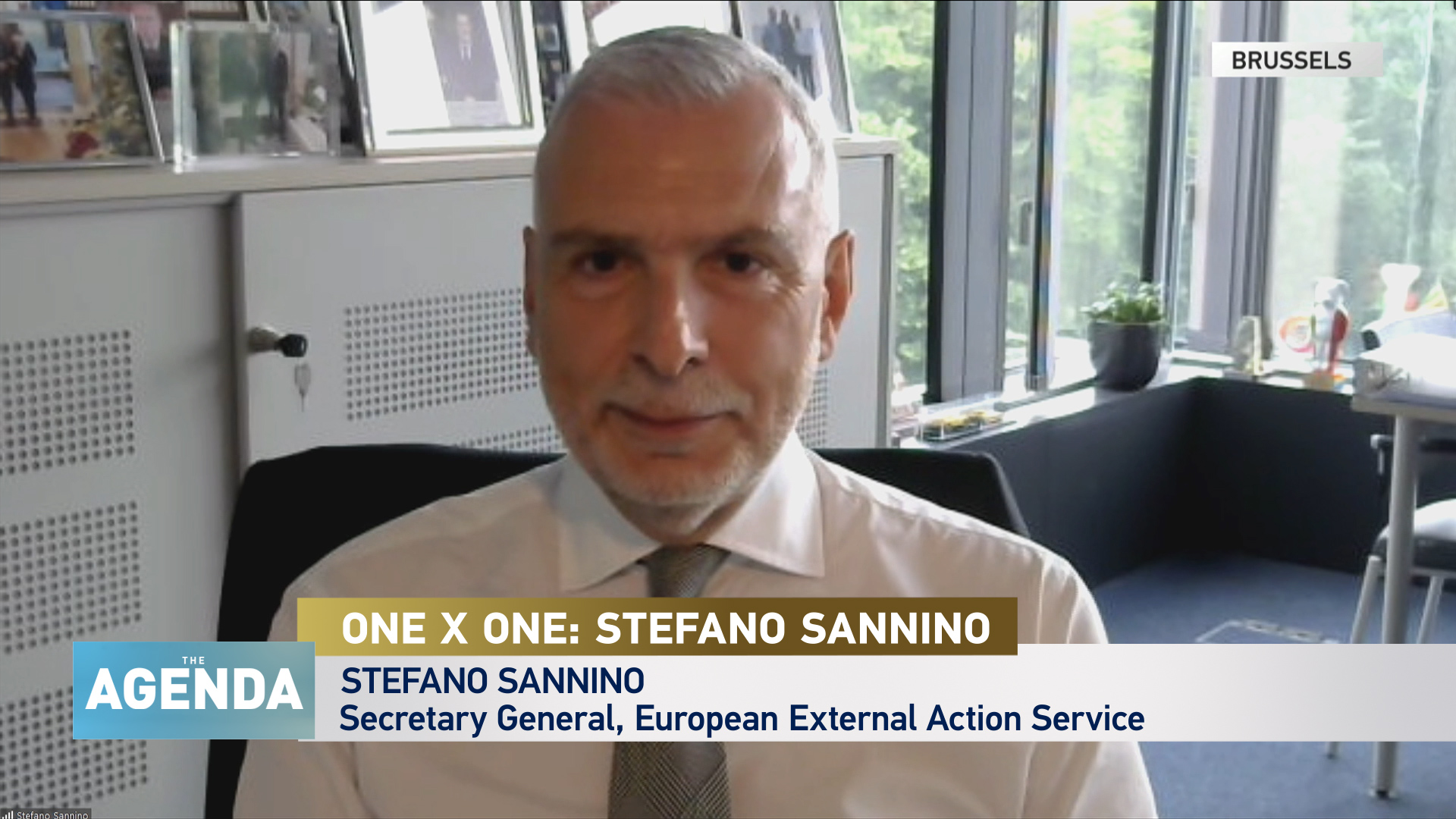29:40

WHAT'S THE STORY?
As the conflict in Ukraine continues, there has rarely been a more important time for diplomacy in Europe - foreign relations, security and defense have never been so high on the European Union's agenda.
All these issues are the remit of the European External Action Service, and here the man in charge, Secretary-General Stefano Sannino joins Stephen Cole for an exclusive interview to discuss the new geopolitics emerging from the crisis in Ukraine.
MEET THE EXPERT
Stefano Sannino has been the Secretary-General of the European External Action Service (EEAS) of the European Union since January 1, 2021.
Previously, he was the Ambassador of Italy to Spain and Andorra and the Italian Permanent Representative to the European Union. Sannino also served as Director General for Enlargement in the European Commission.

WHAT DOES SANNINO SAY?
Stefano Sannino begins the interview by explaining just how the EEAS works, "Foreign policy in the European Union has a different dimension in the sense that it has to do also with the horizontal policies of the European Union - the energy policy or the environmental policy."
"It's a sort of hybrid of different things. It is not the 28th foreign minister. It's something that's bringing together the characteristics of a national foreign ministry and adjusting to an EU dimension.”
He goes on to explain that all of the EEAS's functions have come together now to focus on the crisis in Ukraine: "It is on the top of our agenda," he says, adding "The reaction of the European Union has been very strong and very united…all the member states were willing to move together to give a clear response to what was happening in Ukraine."
Sanctions have obviously been a key part of the EU's reaction to the conflict – but these have caused some difficulty: "We have tried to calibrate these sanctions in a way which was having an impact on the Russian economy without at the same time creating excessive problems to our economy….we also need to consider not only the European Union, but also for third countries outside the European Union… affecting Russia and at the same time not destroying our economy.. there is a fine balance than needs to be reached.”
He also touches on relations between the EU and NATO in the light of the Ukraine crisis "It's a very intense and constructive relationship.. we keep working with NATO because it is a very clear complement between the hard security provided.”
And he goes on to discuss an increasingly close relationship between the EU and the U.S. – and how that impacts vital relations with China: "There is no doubt that the relation between the EU and China is fundamental and that China is a extremely relevant political and economic actor on the international scene. So we need to be able to find a way of managing that complex relationship."


